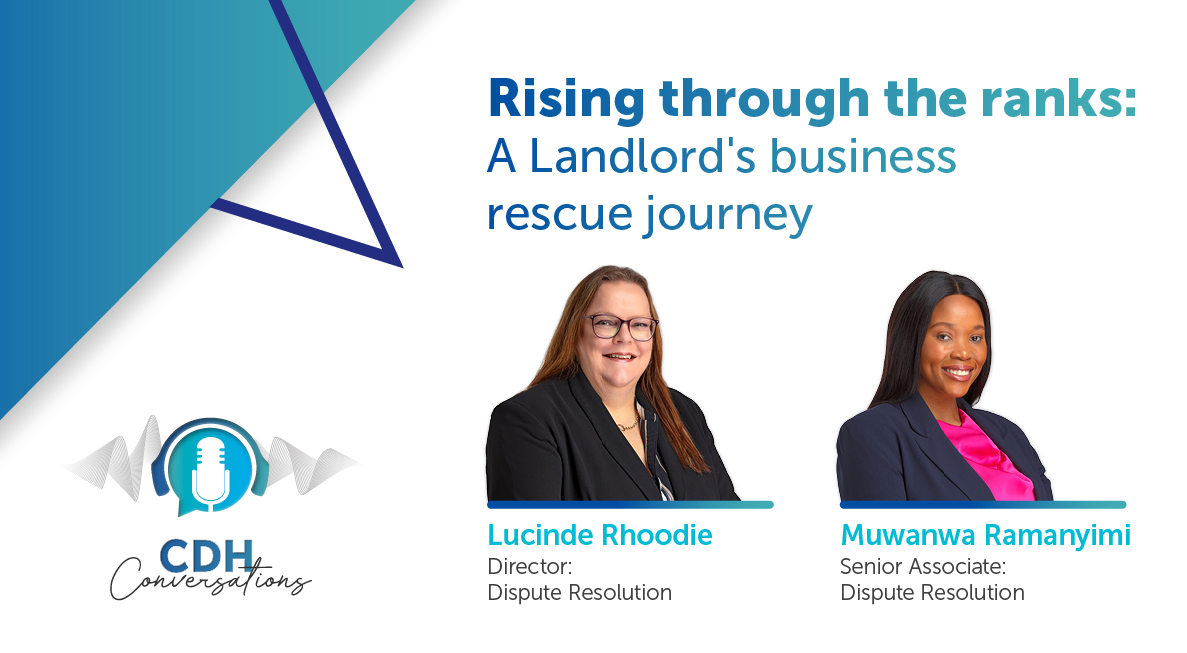Unclaimed benefits: The quagmire of retirement funds
At a glance
- Unclaimed retirement benefits pose a significant problem for retirement funds, with estimated unclaimed assets in the billions of rands.
- Initiatives have been developed to track beneficiaries of unclaimed funds, and a recent discussion paper by the Financial Services Conduct Authority (FSCA) aims to address the issue.
- The discussion paper proposes various changes, including the establishment of a central unclaimed assets fund, standardized reporting, tax neutrality, and regulation of tracing agents. Public comments on the proposals are invited.
Over the years, various initiatives have been developed to track the beneficiaries of unclaimed funds and a recent discussion paper, which is open for public comment by 30 November 2022, is the latest in the series of initiatives.
Prior to 2007, it was common for rules of retirement funds to provide that a failure to claim a benefit within three years of attaining pensionable age would lead to the pension reverting to the fund. The position changed in 2007, when PF Circular No.126 was issued, placing a prohibition on unclaimed benefits reverting to the fund. The FSCA also published Regulation 35(4) which provides for the protection of unclaimed benefits.
The FSCA has outlined a number of factors that have resulted in the accumulation of unclaimed benefits. These include: difficulty often associated with tracing these former members or their beneficiaries; failure by members to provided their details and beneficiaries’ updated contact details; personal circumstances forcing workers to return to their rural homes, often forgetting that they have unclaimed pension benefits; migrant workers travelling across the borders under different names into South Africa in search of employment; poor administration of retirement funds; as well as a transfer from one retirement fund to another as a result of mergers, sale and liquidation of businesses. However, what seems to be at the heart of this issue is employers also failing to take steps to arrange for their employees to receive their entitlement to their retirement fund benefits upon termination of the employment relationship. Other reasons include poor administration coupled with a failure by the boards of retirement funds to monitor compliance by those administrators and the failure by many fund members to inform their dependents that, if they die in service, there may be benefits payable to those dependents. Some of these are also relics from “orphan funds”.
The figure of unclaimed benefits was first reported at R42 billion in 2020, and a report published by the FSCA in April 2022 showed that “80% of the unclaimed funds are with trade union-affiliated pension funds and the majority of these unpaid members are low-income miners”. According to the FCSA:
“The key reason for the high level of unclaimed funds is that members change jobs without updating their personal information, and they lack the financial literacy to understand the implications, and administrators also have poor records of their member base. Asset managers and fund administrators continue to earn fees from these unclaimed assets.”
Duty on retirement funds
Section 15B(4)(a) of the Pension Funds Act 24 of 1956 (PFA), places a duty on retirement funds to trace their members. In order to properly execute this duty, the trustees must take reasonable steps to obtain the records from the administrator, to construct records from the employer or any fund to which the former employee was transferred or trade union, and to advertise on a national basis or in an area where the former members used to work, inviting them to come forward to claim their benefits.
In the recent case of Benjamin v Mines 1970 Unclaimed Benefits Preservation [2021] 1 BPLR 195 (PFA), the Pension Funds Adjudicator (Adjudicator) found that it is not the responsibility of the beneficiary to obtain the deceased’s record of service in the mining sector for purposes of processing the unclaimed benefit of the deceased in that case. The Adjudicator further stated that the fund in question and its administrator should desist from requiring members or beneficiaries to provide information that is not their responsibility but that of the fund and its administrators.
Regulation 35(4) of the PFA also enables retirement funds regulated by the PFA to place unclaimed benefits in contingency reserve accounts where such funds are unable to trace their former members and beneficiaries who are entitled to such benefits. These contingency accounts must be explicitly provided for in terms of the rules of the retirement fund.
Employers, retirement funds, administrators and trade unions should collectively ensure that members receive full payment of their retirement benefits on termination.
Discussion paper proposals
The FSCA and National Treasury have been working towards finding a solution for locating and distributing unclaimed benefits of former retirement fund members or their beneficiaries. The discussion paper issued by the FSCA on 21 September 2022 comes at a time where a number of developments and changes are happening in the retirement and pension law space.
It is estimated that R88,56 billion of unclaimed assets are held by financial institutions across the financial sector. Unclaimed retirement benefits constitute 53% of the total estimated unclaimed asset value, followed by the collective investment scheme and life insurance industry that holds 38% of unclaimed assets.
The discussion paper sets out 13 recommendations in support of a holistic and consistent approach to the treatment of lost accounts and unclaimed assets, including the following important changes and considerations:
Establishing a single central unclaimed assets fund
All assets identified as unclaimed should be transferred into the fund and managed on behalf of the sector. Alternatively, such unclaimed assets can be transferred into the National Revenue Fund for the same purpose.
Projects with social, environmental and developmental benefits
Actuarially allocated amounts should be invested through social impact funds to support infrastructure development, with specific deliverables for things such as schools and clinics.
An aligned approach
There should be a common understanding of what constitutes a dormant account, a lost account and an unclaimed asset. In other words, there should be no deadline upon which a member forfeits his/her assets if not claimed.
Tax neutrality
Benefits should be taxed only when a beneficiary claims them, not at the time they move into the central unclaimed benefits fund.
Standardised reporting
Financial institutions would have to keep records of identified dormant accounts and un¬claimed assets, including the number of accounts and beneficial owners, asset types, individual asset values, age of assets, age and race of beneficial owners, and how the institution has tried to trace owners. The information would have to be reported regularly to the FSCA.
A centralised database
This would help with tracing efforts across the financial services industry.
A minimum threshold for unclaimed assets
These funds can still be claimed at any point, but no money would be spent on active tracing of beneficiaries. At this stage, it is proposed that the threshold amount be set initially at R1,000 for unclaimed assets deriving from a retirement fund that is older than 20 years, and R100 for all other assets.
Increasing the monitoring of financial institutions with a high quantum of unclaimed benefits.
Regulation of tracing agents
Al¬though tracing agents are mainly concentrated in the retirement sector at present, it is expected that they would extend to other sectors, and regulation would curb abusive practices.
A standardised approach to monitoring and tracing owners of unclaimed assets is needed, with financial institutions being duty-bound to maintain detailed and current records on matters such as dormant accounts and unclaimed assets.
Intermediaries who charge exorbitant fees for helping possible beneficiaries claim their benefits has long been contentious. This is because some intermediaries are not authorised by the funds to perform this function.
Commentators are invited to submit comments on the proposed recommendations and respond to the key questions set out in the discussion paper by 30 November 2022. Should assistance be required with submissions, please contact us.
The information and material published on this website is provided for general purposes only and does not constitute legal advice. We make every effort to ensure that the content is updated regularly and to offer the most current and accurate information. Please consult one of our lawyers on any specific legal problem or matter. We accept no responsibility for any loss or damage, whether direct or consequential, which may arise from reliance on the information contained in these pages. Please refer to our full terms and conditions. Copyright © 2026 Cliffe Dekker Hofmeyr. All rights reserved. For permission to reproduce an article or publication, please contact us cliffedekkerhofmeyr@cdhlegal.com.
Subscribe
We support our clients’ strategic and operational needs by offering innovative, integrated and high quality thought leadership. To stay up to date on the latest legal developments that may potentially impact your business, subscribe to our alerts, seminar and webinar invitations.
Subscribe



